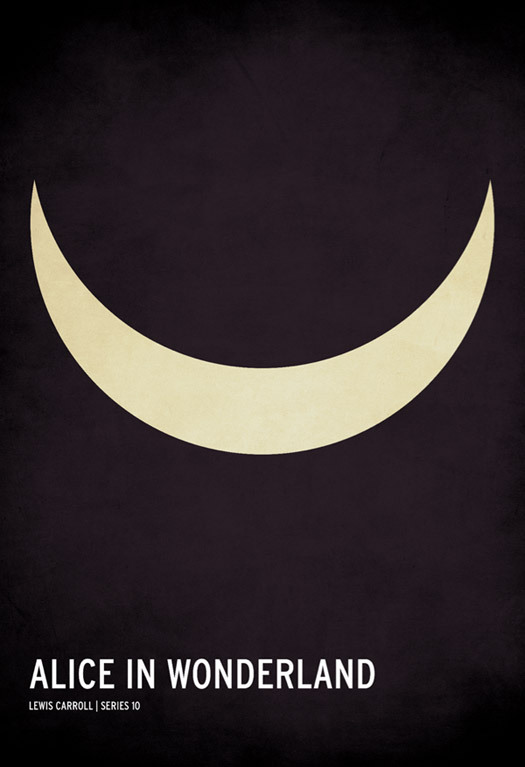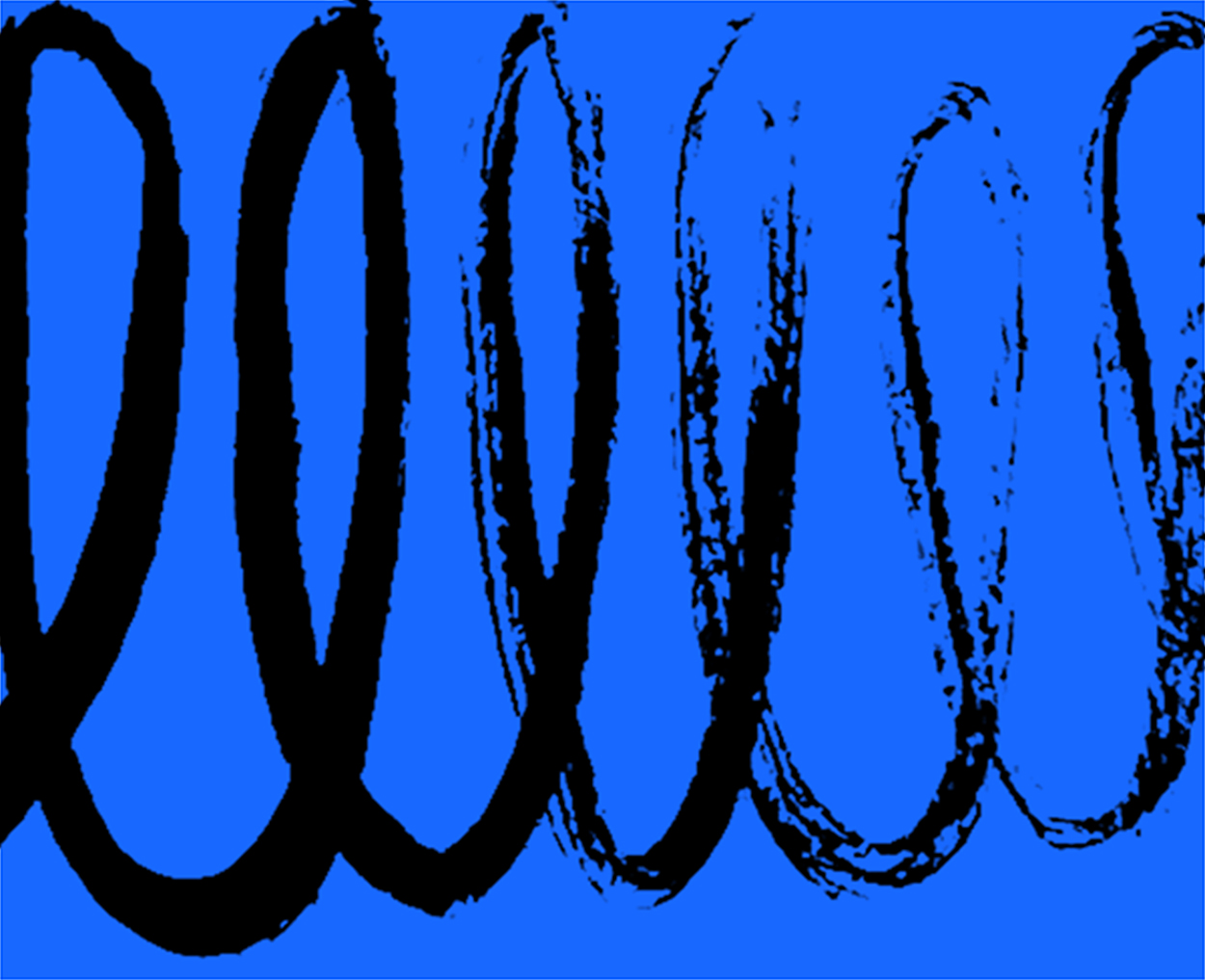
September 6, 2011
Stop That: Minimalist Posters

Minimalist children’s book poster, by Christian Jackson
“Stop That” is a recurring series I just invented. Previous entries include “Hands Off the Icons,” a Dwell column in which I begged the furniture manufacturers of the world to stop painting Eames green and Le Corbusier pink (latest outrage = Xtreames, which offers to pimp your Lounge with olive leather and stripes to benefit the armed forces). And my Twitter war against Architect Barbie, which all the good intentions in the world can’t save from being a bad idea.
This week, minimalist posters, a design blog meme whose time is over. As I tweeted last week, on a day which brought me both minimalist Philosophy posters and minimalist Game of Thrones posters, “It’s official: there’s nothing you can’t make a minimalist poster for, and soon there will be nothing without one.” What was, the first time I saw it applied to Mad Men, a charming exercise in reducing archetypes to their essence, has now become an attention-getting tic. After Mad Men (at least on my Dashboard) came Albert Exergian’s more ambitious series on TV shows. And Marvel superheros. And fairy tales.
All these posters are good-looking: clean, modern, mostly clever. (Marvel’s superhero symbols are already masterpieces of minimalism, making the posterization redundant.) At least Alice, above, makes you think twice. So what’s my problem? First, these posters seem part of the long wave of 1960s retromania in graphic design (among other places), a wave that includes House Industries’ Eames and Girard fonts, the ubiquity of Neutraface, even the current penchant for fonts that look like the lettering on Harley Earl-designed bumpers. Peter Biľak recently wrote on Typotheque, “We Don’t Need New Fonts,” meaning, make a font that fulfills a contemporary need rather than redrawing the past.
Still, there are typefaces which haven’t been made yet and which we need. Type that reacts to our present reality rather than being constrained by past conventions; type for non-Latin scripts that gives its users more choices; type that brings readers from previous media to new ones. It is time to think about why we design type, not just how we design it.

“For Like Ever” poster, by Village
Second: Don’t trade on past glories or past masters. Those Marvel posters don’t really improve on the original, they just make it into a new commodity, and the designer gets fans by adjacency. Now minimalist posters themselves have become an adjacency: if you make some, you can be assured they will travel the blogs, Tumblr, Twitter. It’s an obvious self-promotion meme, separate from the promotion of a specific product, or work for a client. I’d much rather buy a poster designed to work out there in the world than a poster designed as 2011 room decor. These will date, just like “For Like Ever” and “Keep Calm and Carry On.” Fun while they lasted, but now as twee as the birds.
I know this sounds snobby. I know I shouldn’t deny anyone the right to self-promote. But the best piece of graphic design I saw last week was this, from Christian Annyas’s post of Sanborn map logos and type. 
BROOKLYN New York. Atlas 80. Vol. 6, 1888 (via Annyas)
It is everything the minimalist posters aren’t. And it was so complicated, so anti-minimal, it made me want to look twice.
Observed
View all
Observed
By Alexandra Lange
Related Posts

Business
Courtney L. McCluney, PhD|Essays
Rest as reparations: reimagining how we invest in Black women entrepreneurs

Design Impact
Seher Anand|Essays
Food branding without borders: chai, culture, and the politics of packaging

Graphic Design
Sarah Gephart|Essays
A new alphabet for a shared lived experience

Arts + Culture
Nila Rezaei|Essays
“Dear mother, I made us a seat”: a Mother’s Day tribute to the women of Iran
Recent Posts
Candace Parker & Michael C. Bush on Purpose, Leadership and Meeting the MomentCourtney L. McCluney, PhD|Essays
Rest as reparations: reimagining how we invest in Black women entrepreneurs Food branding without borders: chai, culture, and the politics of packaging Why scaling back on equity is more than risky — it’s economically irresponsibleRelated Posts

Business
Courtney L. McCluney, PhD|Essays
Rest as reparations: reimagining how we invest in Black women entrepreneurs

Design Impact
Seher Anand|Essays
Food branding without borders: chai, culture, and the politics of packaging

Graphic Design
Sarah Gephart|Essays
A new alphabet for a shared lived experience

Arts + Culture
Nila Rezaei|Essays

 Alexandra Lange is an architecture critic and author, and the 2025 Pulitzer Prize winner for Criticism, awarded for her work as a contributing writer for Bloomberg CityLab. She is currently the architecture critic for Curbed and has written extensively for Design Observer, Architect, New York Magazine, and The New York Times. Lange holds a PhD in 20th-century architecture history from New York University. Her writing often explores the intersection of architecture, urban planning, and design, with a focus on how the built environment shapes everyday life. She is also a recipient of the Steven Heller Prize for Cultural Commentary from AIGA, an honor she shares with Design Observer’s Editor-in-Chief,
Alexandra Lange is an architecture critic and author, and the 2025 Pulitzer Prize winner for Criticism, awarded for her work as a contributing writer for Bloomberg CityLab. She is currently the architecture critic for Curbed and has written extensively for Design Observer, Architect, New York Magazine, and The New York Times. Lange holds a PhD in 20th-century architecture history from New York University. Her writing often explores the intersection of architecture, urban planning, and design, with a focus on how the built environment shapes everyday life. She is also a recipient of the Steven Heller Prize for Cultural Commentary from AIGA, an honor she shares with Design Observer’s Editor-in-Chief,